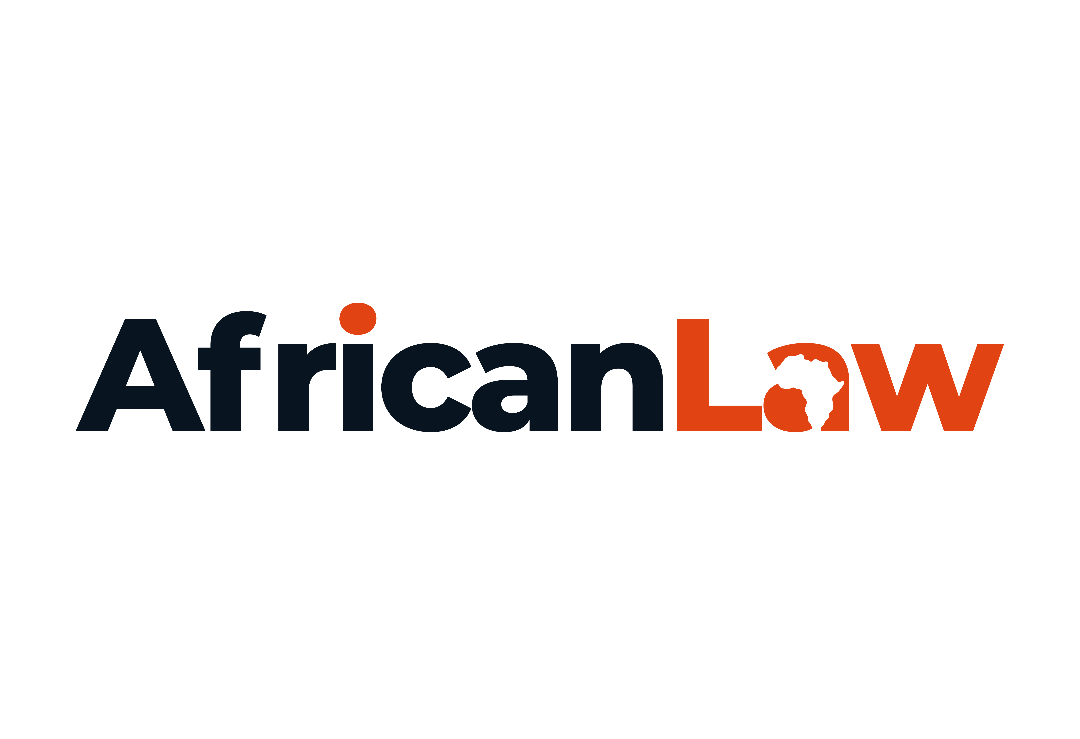It is important to note at the outset that Zanzibar is one of the jurisdictions in East Africa that have successfully enacted better laws to protect Industrial Property rights. We say this for a reason, firstly Zanzibar has one law and a single institution that protects all Industrial Property rights. Secondly, Zanzibar's Industrial Property Rights law has almost complied with the requirements and standards set out by international and regional intellectual property instruments. Lastly, Zanzibar has a law which provides for effective enforcement of industrial property rights. In this article we have highlighted how Industrial property rights are enforced in Zanzibar. The analysis has taken into account all industrial property rights to enable the proprietor knowing where to start when their right is being infringed or expects to be infringed.
In this article we speak to Mr. Mkama M. Kalebu of Endo & Co. Advocates on the protection and enforcement of Intellectual Property in Zanzibar, as well as his thoughts on IP awareness and state of innovation on the continent.
Can you tell us about industry trends you've noticed lately or even implemented?
MK -The industry that I have witnessed doing well is the education industry; training; entertainment; sporting and cultural activities. This can be witnessed by companies, individuals and various institutions requesting to register trademarks and services in classes that directly affect the education, sports, entertainment and cultural activities industries. Another industry that is doing well and that cannot be forgotten is the telecommunications and information industry.
Can you tell us about the enforcement of patents and utility models in Zanzibar?
MK - Patents or utility models become infringed when a person other than the owner of the patent exploits the patented invention or utility model without the consent of the owner. This infringement can be through making, importing, offering for sale, selling and using the product or stocking such product for the purposes of offering for sale, selling or using. However, such infringement is subject to some privileges laid under the law such as acts done relating to experimental use. In the event that patents or utility models have been infringed in one of the circumstances mentioned above, then the owner may write to the infringer requesting them to stop or do anything that the owner deems appropriate within 90 days. In the event that an infringer fails to comply with the owner's request, the owner may file a case in the High Court of Zanzibar for an injunction to prevent infringement and payment of damages and any other remedies.
What about trademarks, collective marks & certification signs?
MK - Infringement of trademark, collective marks and certification signs occurs when a person other than the owner of the mark and without the agreement of the latter uses in the course of trade identical or similar signs for goods or services identical or similar to those in respect of which the mark is registered, where such use would result in a likelihood of confusion. In respect of a well- known mark an infringement occurs when the use of the sign in relation to those goods or services would indicate a connection between those goods or services and the owner of the well-known mark and that the interests of the owner of the well known mark are likely to be damaged by such use. In the event of infringement, the right holder may write to the infringer requesting them to stop the infringement or do anything that the right holder deems appropriate within 60 days. In the event that an infringer fails to comply with the right holder’s request, the right holder may file a case in the High Court of Zanzibar for an injunction to prevent infringement, or an imminent infringement, damages and other remedies. The Court may also order the infringer to inform the right holder of the identity of third persons involved in the production and distribution of the infringing goods or rendering of services and of their channels of distribution, where this would be in proportion to the seriousness of the infringement.
Are there any provisional measures with regards to alleged infringement?
MK - Right holders may apply to the court for provisional measures such as preservation of relevant evidence in regard to an alleged infringement. The applicant must furnish reasonably available evidence to satisfy the Court with a sufficient degree of certainty that they are the right holder and that their rights are being infringed or that such infringement is imminent. The court may order the applicant to pay any security or equivalent assurance before proceeding. Upon satisfaction, the court may grant provisional measures without giving the other party an opportunity of being heard and give the parties affected notice of the decision, at the latest after the execution of the measures.
Right for Review
The court may confirm, modify or revoke the decision upon application by the defendant. The application for review should be made within two weeks from the notification of the decision whereby parties will be given an opportunity of being heard. Where the provisional measures are revoked the Court shall order the applicant, upon the request of the defendant, to provide the defendant appropriate compensation for any injury caused by the execution of the provisional measures.
Note: It is obligatory for the applicant to initiate court proceedings leading to a decision on the merits of the case within 20 working days or 31 calendar days, whichever is the longer, from the notification of the decision ordering provisional measures or within any other reasonable period determined by the Court in the decision. If the applicant fails to initiate court proceedings within the specified time, the defendant may request the court to revoke the provisional measures.
Outcome of the case to the Defendant
Upon hearing the case on the merits initiated by the applicant, in case the court find that there has been no infringement or threat of an infringement, the Court shall order the applicant, upon the request of the defendant, to provide the defendant appropriate compensation for any injury caused by the execution of the provisional measures.
Right of Appeal
Any of the parties in the proceedings aggrieved by the decision by the Court may appeal to the Court of Appeal. This appeal will be governed by the Court of Appeal procedure. Criminal Proceedings This can be initiated in the High Court of Zanzibar in cases of willful trademark counterfeiting or copyright piracy on a commercial scale. The available criminal measures and penalties include seizure, forfeiture and destruction of the infringing goods and of any material and implements the predominant use of which has been the commission of the offense.
What about the enforcement of industrial designs and geographical indications?
MK - The registration of Industrial designs in Zanzibar confers the owner the right to prevent others from making, selling or importation of articles incorporating the industrial design. This right is said to be infringed when a person other than the owner of the industrial design and without his agreement makes an offer to sell or import an article incorporating the industrial design. Infringement action is similar to that of trademark where the right holder may write to the infringer requesting him to stop the infringement or do anything that the right holder deems appropriate within 60 days. In the event that an infringer fails to comply with the right holder’s request, the right holder may file a case in the High Court of Zanzibar for an injunction to prevent infringement, or an imminent infringement, damages and other remedies. Other matters such as provisional measures, rights to review and appeal are similar to those of Trademarks above.
Enforcement of Geographical Indications (GIs)
A geographical indication is said to be infringement when a person who is not a producer or who has no right to use, uses the product possessing the quality, reputation or other characteristics specified in the Register in the course of trade. When this happens, the producer of geographical indication has the right to write a 60 day notice to the infringer asking him to stop the damage. They may attach other demands such as compensation etc. At this point the producer of a geographical indication is required to ensure that they have sufficient evidence including registration documents. If an infringer fails to provide adequate co-operation to the producer, the producer may decide to institute civil or criminal cases. Litigation cases are being opened in the High Court Zanzibar in accordance with laws and regulations. It is also important to note that any interested person or of any interested group of producers or consumers may request the Court to issue an injunction to prevent the unlawful use of the geographical indication. Upon application the court may award damages and grant any other remedy. Any person aggrieved with interim order may apply for review.
Burden of Proof
It is the responsibility of the owner who claims that their intellectual property has been infringed to bring sufficient evidence to support the claim. It may happen that the defendant has specific evidence in their possession that can help the applicant to substantiate the claim, the applicant may ask the court to order the defendant to produce the evidence to court. The court shall avail conditions which ensure the protection of confidential information.
What are some common client misconceptions about your line of work? How do you overcome or navigate those objections?
MK - Some clients, especially from other continents such as Europe, have less confidence in African scholars, especially when it comes to honesty in matters of money as well as in job efficiency. For me it has been a challenge that gives me more strength to boost my confidence and work at all levels of professional ethics. I serve clients from all continents around the world and my working slogan has been speed, standard and accuracy by taking my clients through each stage till the end.
How do you feel about the state of innovation in Africa today?
MK - Africa has been creative on many fronts -works of art, innovation and many commercial works. All of these works involve intellectual property. The biggest problem has been in formalization. The main reason is to ignore the benefits of the next generation. Most Africans are looking at the benefits of the current era. For example a person starts a company and does business but does not invest in future generations. There is still a need to continue to provide education on the benefits of investing for future generations in Africa as people of other continents such as Europe and Asia do. Another problem, many Africans have not yet seen the need to engage intellectual property professionals in adding value to their intellectual property assets. For example you will find someone owning a business name, but he does not see it as an asset that can increase his income. Our African nations can create a good policy or guideline for having more education in business, especially using intellectual property by engaging professionals.
The team at Endo & Co. Advocates
Mkama Magoti Kalebu is the Managing Partner& Head of the Intellectual Property, Technology & Media, Telecommunications and Data Protection Practices at ENDO & COMPANY ADVOCATES. He handles both contentious and non- contentious matters in the areas of intellectual property ("IP"), media, information technology ("IT"), data protection and telecommunications law, and has extensive experience working on regulatory, transactional, enforcement and advisory projects in these areas, counting among his clients’ multinational companies, listed corporations and government regulators.

















